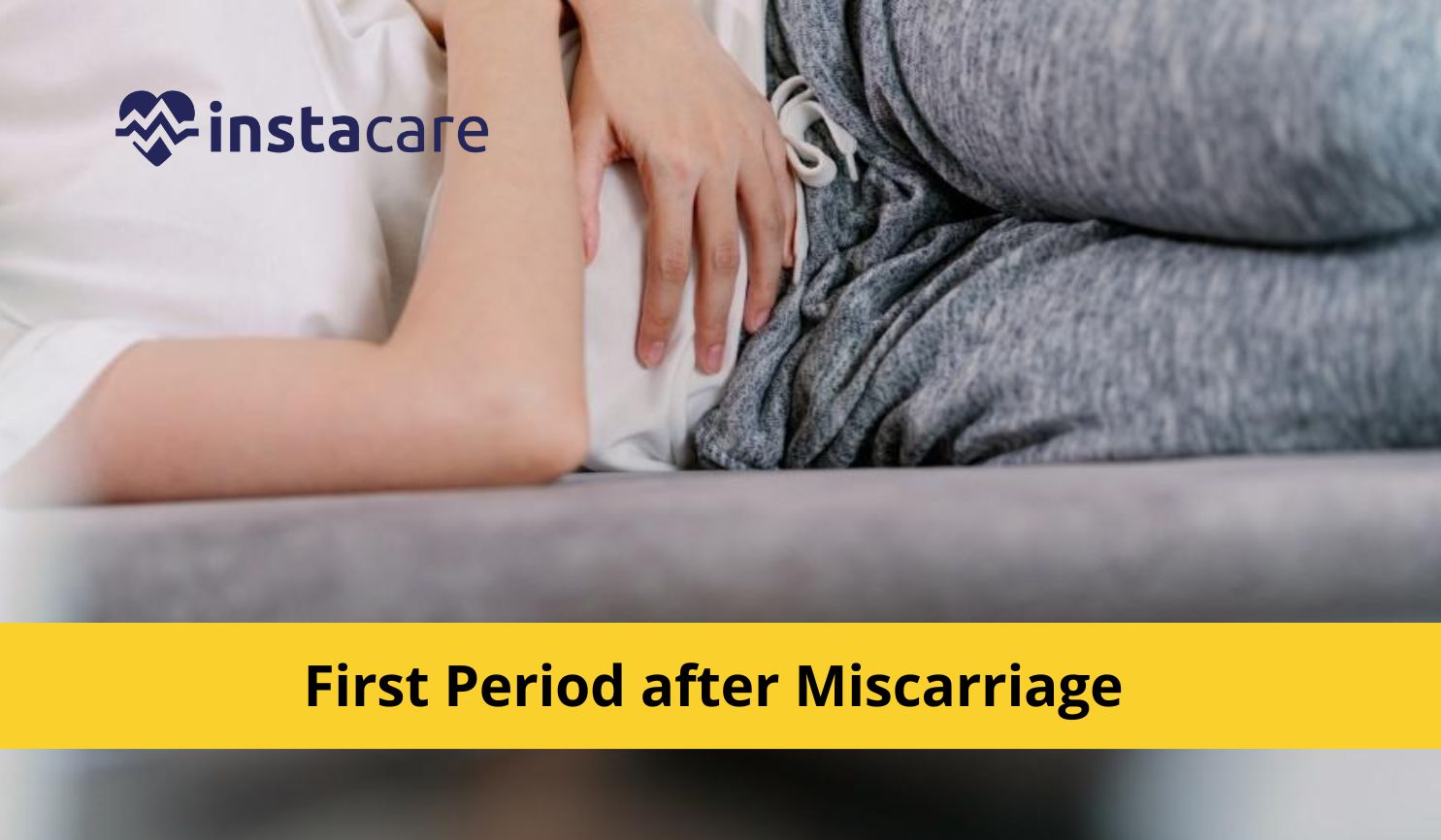If you've recently experienced a miscarriage, the last thing on your mind is probably getting your period back. Amidst the emotional upheaval and changes to both physical and psychological health, understanding what will happen regarding your menstrual cycle after a miscarriage can be daunting. It’s normal to feel lost in the complex jumble of internet advice, varying reports from friends or family members, and plenty of questions about when—and even if—you'll get back into that regular rhythm. Keep reading for more insight into what first-period post-miscarriage entails and some tips to make it as comfortable as possible!
Miscarriage facts
Miscarriage is a difficult and emotional experience for any woman to go through. While there is no way to completely prevent a miscarriage from happening, there are certain things a woman can do to help support her body after the loss. One of the most common questions many women have is about the period after miscarriage. After a miscarriage, it is normal to experience some bleeding, which can be light or heavy. The timing of a woman's first period after miscarriage can vary, but typically it will occur within four to six weeks of the miscarriage.
It is important to remember that every woman's body is different, and there is no right or wrong way to experience a miscarriage or the period that follows. Taking care of oneself physically and emotionally during this time can help with recovery and healing.
What are the signs of a first period after a miscarriage?
A woman's period can often be an indicator of her overall reproductive health, including after a miscarriage. After experiencing a loss, many women may wonder what to expect when their body begins to undergo changes once again. The signs of a first period after a miscarriage can vary from person to person, but commonly include light bleeding, cramping, changes in discharge, and emotional fluctuations.
It is important for women to be aware of these signs and talk to their healthcare provider about any concerns they may have. Through proper communication and self-care, women can navigate the complexities of their period after a miscarriage and feel empowered in their overall reproductive well-being.
Why is my period different?
Experiencing a miscarriage can be a difficult and emotional time for any woman, and it can also have a profound impact on your menstrual cycle. For many women, periods can be different after a miscarriage, with changes in the duration, heaviness, and overall experience of the menstrual cycle. These differences can be caused by a range of factors, including hormonal imbalances, changes in the uterus, and more.
While it is common for women to experience changes in their period after experiencing a miscarriage, it is important to consult with your doctor if you have any concerns or questions. Taking care of your physical and emotional health during this time is critical, and understanding the changes in your menstrual cycle is just one important aspect of this journey.
How long will it last?
When it comes to post-miscarriage periods, many women wonder how long they will last. It's a complex question that doesn't have a clear-cut answer. Typically, a woman's first period after a miscarriage will occur within 6 weeks, but it's not unusual for it to take a bit longer. Some women may experience heavier bleeding and more discomfort during this time, while others may have a lighter flow. It's essential to talk to your healthcare provider about what to expect during this time and any concerning symptoms you have. While post-miscarriage periods can be challenging to navigate, remember that you're not alone, and there's support available to help you through this time.
View More: How To Stop Motions During Pregnancy
Pain relief
Dealing with the emotional pain of a miscarriage can be enough for anyone to handle. Unfortunately, the physical aftermath of a lost pregnancy can add to that pain with the arrival of post-miscarriage periods. Intense cramping and discomfort can make an already difficult time feel even harder. Thankfully, there are various pain relief options available to help ease this discomfort. From over-the-counter pain relievers to heating pads and hot baths, finding what works best for your body can make a world of difference. Remember to take care of yourself during this time and don't hesitate to reach out for help if needed.
How to manage first periods after miscarriage?
Experiencing a miscarriage can be a painful and traumatic time in any woman's life. If you have recently gone through this experience, it is important to know that your period after miscarriage may come with some changes or unexpected symptoms. For example, your periods may return heavier or lighter than usual, or your cycles may be irregular for a few months. To manage your first periods after a miscarriage, it is important to take care of yourself physically and emotionally, allowing time for healing.
You may also want to speak with your healthcare provider about any concerns or questions you have. Remember, it is perfectly normal to experience a range of emotions during this time, so be kind to yourself and seek support if you need it.
Conclusion
In conclusion, the first period after a miscarriage can differ for each woman who experiences it. Depending on the length and amount of bleeding that occurs, it can last anywhere from a few days up to weeks or months. No matter what you are experiencing, remember that there is help available if you need it. Seek out medical advice and support to help process and manage your emotions, and be kind to yourself as you take the time necessary to heal.
Lastly, implementing thoughtful self-care practices can help not only ease your physical discomfort during this time but perhaps more importantly aid in helping cope with any lingering emotional pain. Ultimately, whether you are just past the first period or many have gone by following your experience with miscarriage, know that light will eventually prevail and healing can be found.

